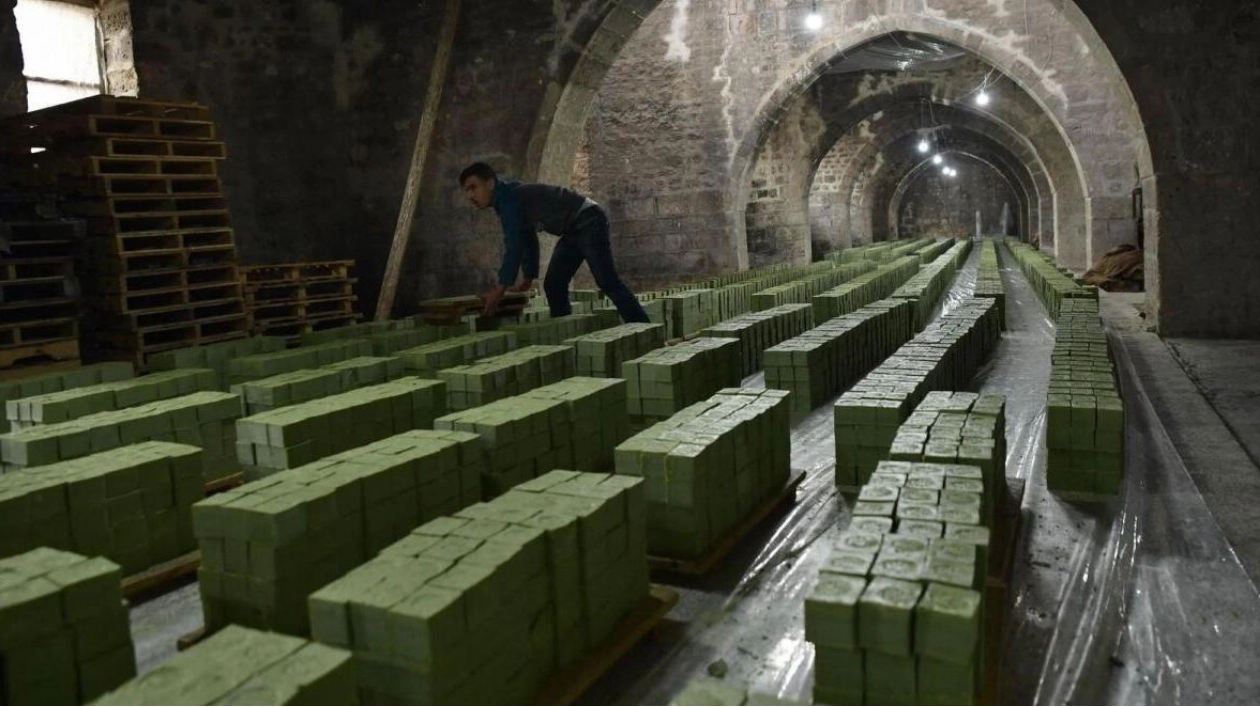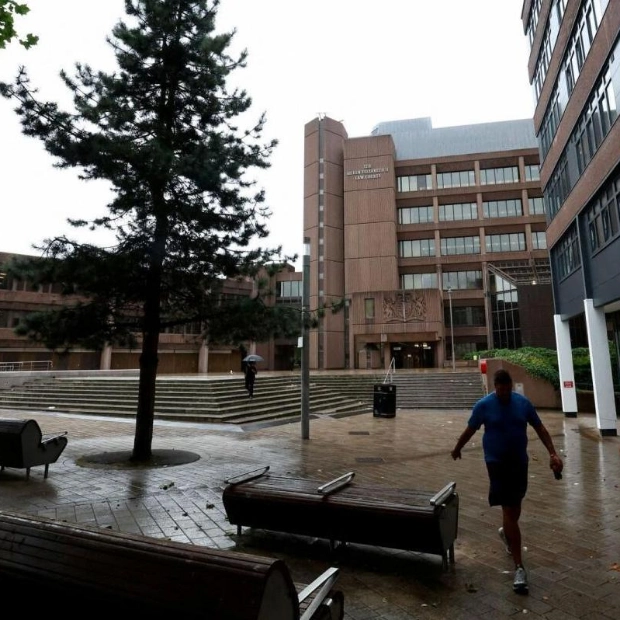A Syrian worker meticulously stacks laurel soap at the Jbaili soap factory, a venerable artisanal soap manufacturer with an 800-year history, located in the ancient city of Aleppo, Syria's northern metropolis, on January 24, 2022. — AFP file
The United Nations' cultural body, UNESCO, has included Aleppo's renowned soap in its list of intangible cultural heritage, as Syria's second-largest city continues to grapple with the ravages of war. For over 3,000 years, artisans in the city—which recently fell to rebels—have been crafting soap by boiling olive and laurel oil in large vats, allowing the mixture to solidify before cutting it into blocks and stamping them by hand. This traditional method joins Aleppo's classical music, Al Qudoud Al Halabiya, on UNESCO's list of intangible cultural heritage. Meanwhile, the city itself, designated a world heritage site in 1986, was placed on UNESCO's endangered list in 2013 due to the ongoing civil war.
UNESCO highlights that the soap is made using 'traditional knowledge and skills,' relying on a blend of natural, locally sourced ingredients and a drying process that can span up to nine months. Aleppo, which had been gradually healing from the scars of more than a decade of civil war, was once again thrust into turmoil when rebels seized the city last week, forcing loyalist forces to retreat. Of the approximately 100 soap factories in Aleppo, only about 10 remain, with many relocating to Damascus or neighboring Turkey. Despite this, the soap remains a cornerstone for the families and communities engaged in the trade.
'The collaborative production process fosters community and family unity,' UNESCO notes.
Source link: https://www.khaleejtimes.com






